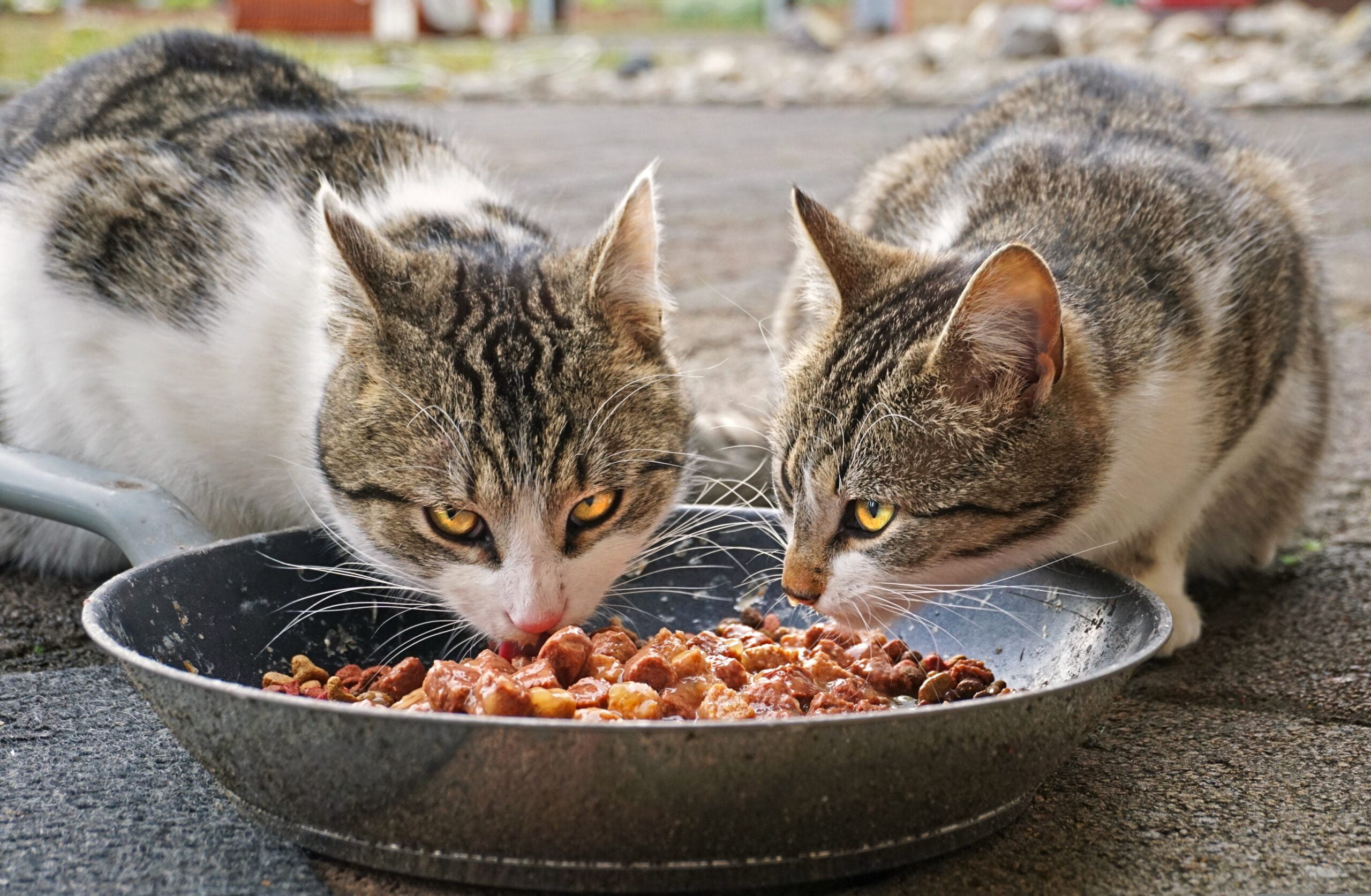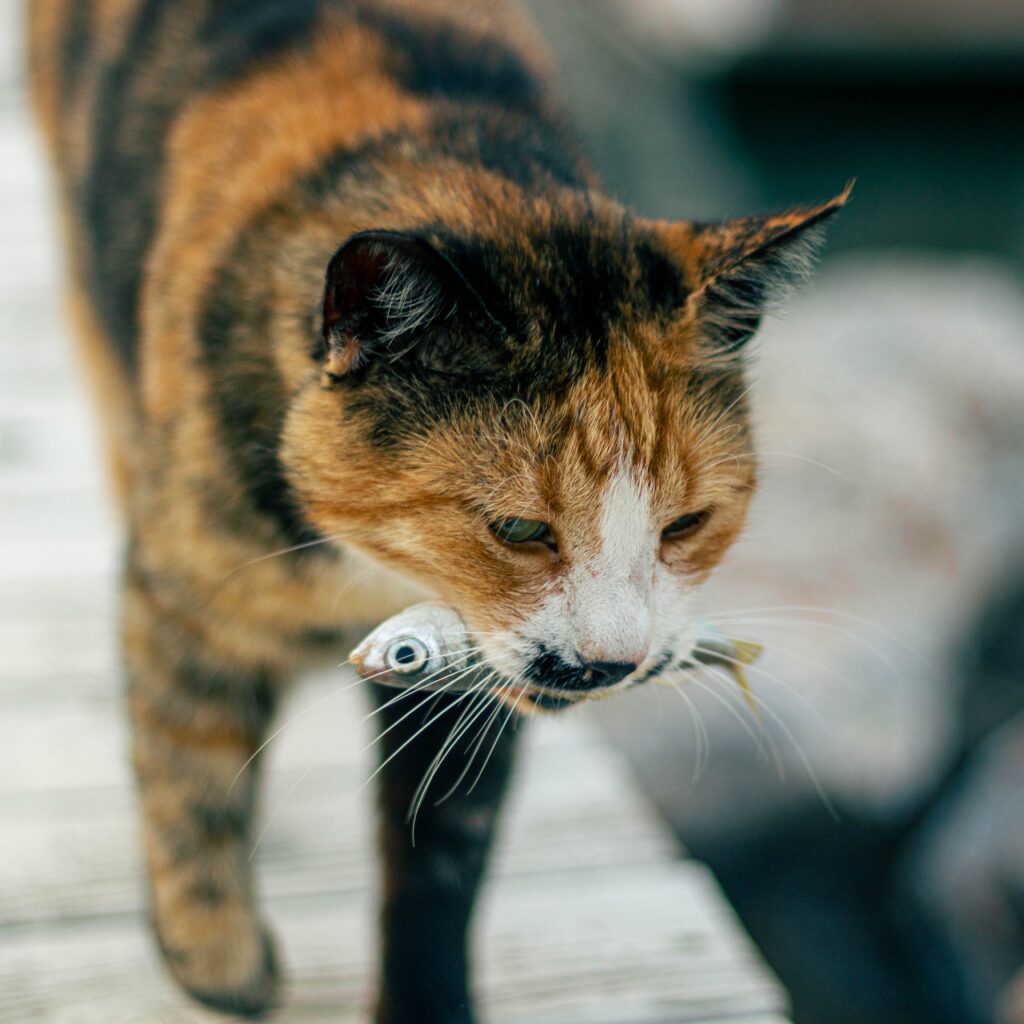Cats Natural Diet
The debate surrounding the merits of feeding your cat canned or dry food continues. Some say canned food is better for their health, while others are against this practice because they feel that providing water is enough liquid intake. But what if your cat’s food isn’t designed specifically for their species? That can lead not only towards chronic illness but death as well because cats have different dietary requirements.

The Best Food Option for Your Cat
Feline nutrition has been studied for decades by scientists and veterinarians who have come up with some often ignored principles about how our favourite felines should eat. The growing number of vets that recommend canned food over dry kibble, is a trend that is sure to continue.
The Cats Natural Diet
In the wild, cats do not drink a large amount of water and generally get their water from eating prey. The normal prey of a cat is over 80% water, whereas a dry kibble diet has only 5%-10%. That’s why feeding your cat a diet that includes plenty of liquids will be critical for its long-term health and well-being.
Did you know that cats love vegetables? Read your article vegetables for cats to increase the health of your cat.
Increased Longevity
Many cat carers consider that a dry kibble diet is acceptable because their cat has not yet exhibited obvious symptoms. The typical illnesses caused by an unnatural diet are progressive and may take years to develop. Sadly, once they do manifest, it can be too late.
Cats have a better chance at optimal health when they’re fed canned food instead of dry kibble. Longevity is increased by not feeding a species-inappropriate dry food diet which can ultimately lead to kidney stones, bladder stones, asthma, food intolerance and inflammatory bowel disease.
Cat carers often consider that wet cat food is too expensive. You may be surprised to hear that the most economical way of feeding your cat is with canned food. The reasoning behind this statement is more than just price; it also takes into account what’s going in the cats’ body, and avoids serious, painful illnesses that end up costing thousands in veterinary bills. Even feeding cheap canned food is better than feeding any dry food on the market.
Urinary Tract Health
All cats need to drink plenty of water, and many cats have suffered terribly painful illnesses due to water-depleted diets. Cats on dry food consume half the amount of water compared to cats on canned food, even with a water dish. The benefit of wet cat food is that the high moisture content increases the cat’s fluid intake, which is vital for urinary tract health.
The more hydrated your cat is, the more often he or she will urinate. Urination is the way nature cleans the bladder and prevents infection. It also helps to prevent crystals, which can block the urinary system, from forming.
The low water content of dry kibble exposes cats to serious and dangerous urinary tract diseases, and painful obstruction can occur. A ruptured bladder may be life-threatening or necessitate emergency catheterization to unblock it and allow urine flow again.
Cats that do not get enough to drink are also at risk of idiopathic and interstitial cystitis. Cystitis is a very painful condition, causing blood in the urine and difficulty passing urine. Cystitis is extremely uncommon among cats fed on canned food, particularly if additional water is added.

Weight Control
Cats are strict carnivores, and their natural diet is high in protein and low in carbohydrates. Canned food has higher protein and lower carbohydrate content than kibble, helping cats to maintain a healthy weight.
In a natural environment, cats would never eat the high level of carbohydrates contained in dry food. Excessive carbohydrates in dry foods alter cats’ blood sugar/insulin balance predisposing them to diabetes, obesity and intestinal disease. Even low-carbohydrate dry foods are highly water-depleted and cooked at high temperatures, depleting the nutritional value.
Feeding canned food can also help to establish clear meal times, and discourage the binge feeding associated with free-feeding dry kibble.
Dental Health
There is a popular misconception that dry food is a way to keep your cat’s teeth clean and healthy. In practice, however, the pieces either shatter or are swallowed whole, with little mechanical action by the teeth.
An easy way to ensure dental health is to give your cat a small piece of unsalted raw meat every week.
Poor Quality and Over-processed
Dry kibble typically contains over 90% grains, beans and potatoes, and involves high temperatures during the cooking process. The resulting poor quality depletes our cats of vital nutrients and vitamins, causing digestive issues, weight gain or loss, and possibly illness further down the road.
Cats struggle to digest this species-inappropriate food, and often subsequently vomit. Further complications can be caused by fungal mycotoxins which are contained in grains and are extremely toxic.
Fussy eaters
If your cat is a fussy eater, the benefit of wet cat food is that it has a stronger aroma compared to dry food. The enhanced smell makes this food more palatable for fussy cats and there are lots of flavours and textures available to suit your cat’s unique tastes. It is worthwhile varying the flavour to find the favourite for your cat.
